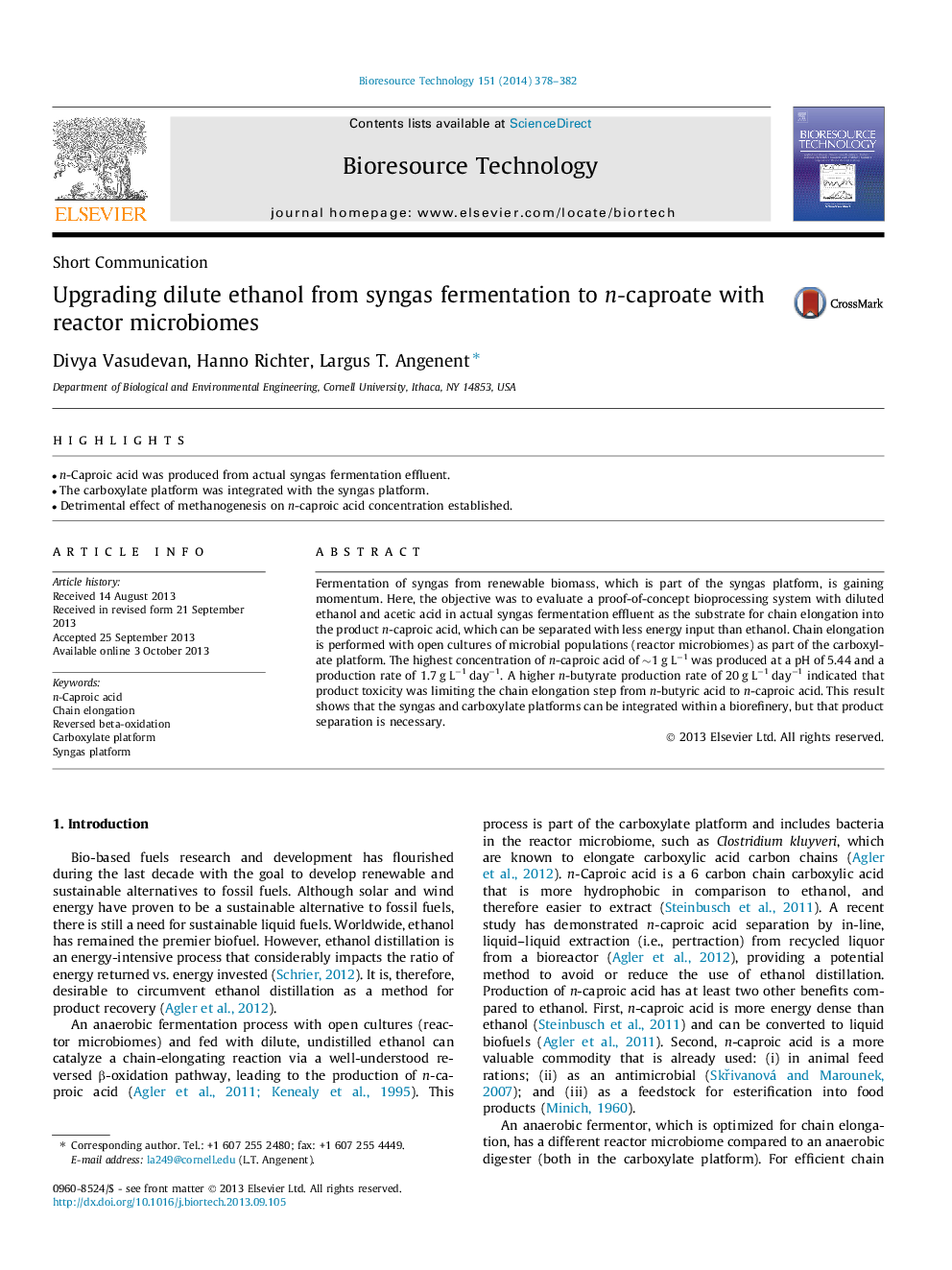| Article ID | Journal | Published Year | Pages | File Type |
|---|---|---|---|---|
| 7079862 | Bioresource Technology | 2014 | 5 Pages |
Abstract
Fermentation of syngas from renewable biomass, which is part of the syngas platform, is gaining momentum. Here, the objective was to evaluate a proof-of-concept bioprocessing system with diluted ethanol and acetic acid in actual syngas fermentation effluent as the substrate for chain elongation into the product n-caproic acid, which can be separated with less energy input than ethanol. Chain elongation is performed with open cultures of microbial populations (reactor microbiomes) as part of the carboxylate platform. The highest concentration of n-caproic acid of â¼1 g Lâ1 was produced at a pH of 5.44 and a production rate of 1.7 g Lâ1 dayâ1. A higher n-butyrate production rate of 20 g Lâ1 dayâ1 indicated that product toxicity was limiting the chain elongation step from n-butyric acid to n-caproic acid. This result shows that the syngas and carboxylate platforms can be integrated within a biorefinery, but that product separation is necessary.
Related Topics
Physical Sciences and Engineering
Chemical Engineering
Process Chemistry and Technology
Authors
Divya Vasudevan, Hanno Richter, Largus T. Angenent,
